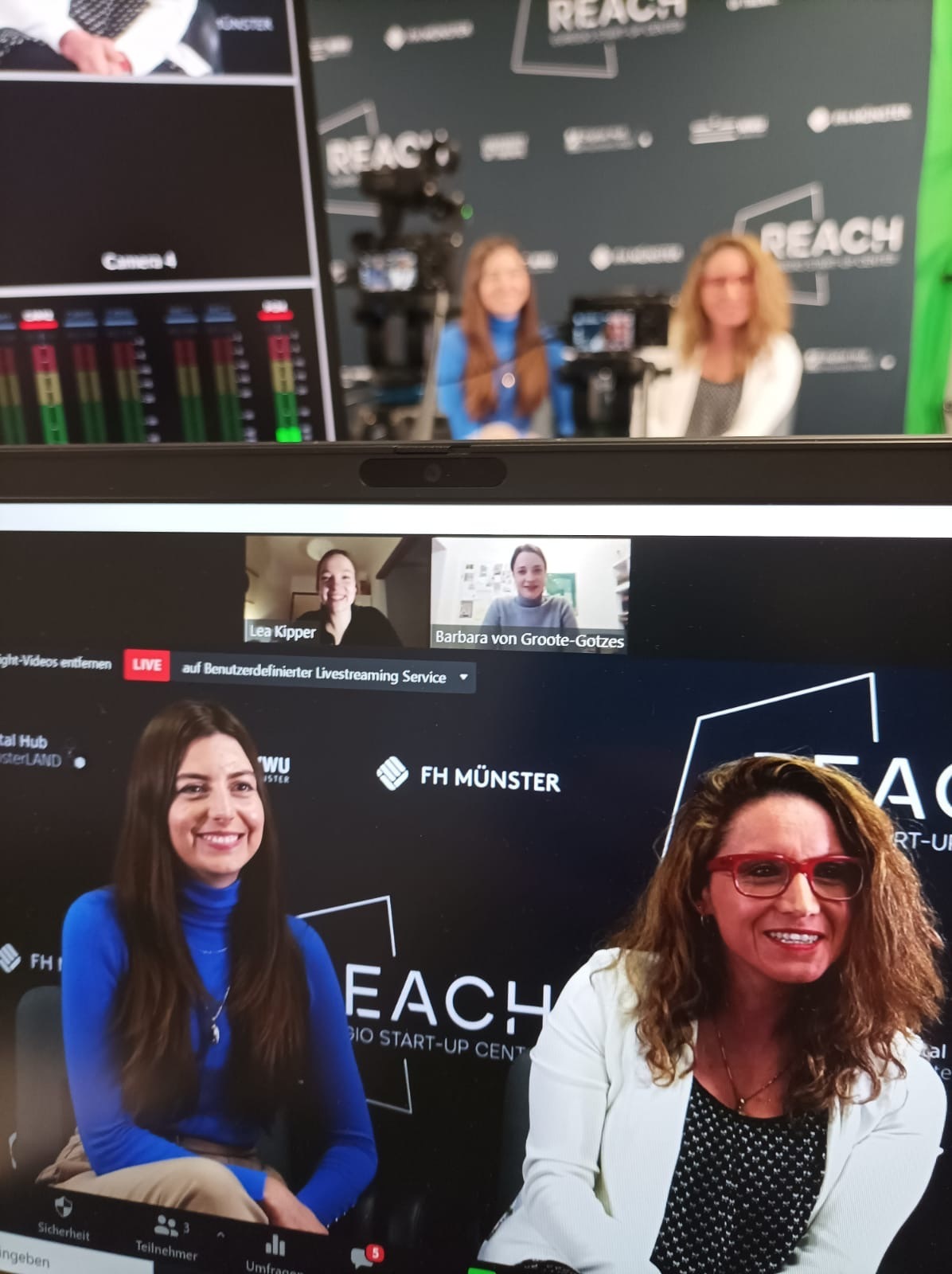
10 February 2022 | Münster
Jun.-Prof.Dr. Sue Rossano-Rivero and PhD(c) Iulia Stroila presented their current research on Inclusive Entrepreneurial Ecosystems and Female Entrepreneurship. How can we increase the share of female graduate entrepreneurs and ensure they are firmly integrated in regional entrepreneurial ecosystems across Europe? What does inclusion of entrepreneurship education and support programmes mean? How can we make women feel invited to the entrepreneurship scene? These are the core questions of their research. In the podcast, you can find out what inclusive entrepreneurial ecosystems look like for women across Europe, what role higher education institutions play in fostering entrepreneurial culture, and what support mechanisms can be put in place to accelerate female entrepreneurship.
During the podcast, Jun.-Prof.Dr. Sue Rossano-Rivero and PhD(c) Iulia Stroila also presented the WeRin project, funded by the ERASMUS+ Knowledge Alliance programme. The project unites fourteen partners from network organizations, associations, research institutes, academia and businesses based in six countries in Europe. Their expertise and strong reputation make a solid foundation for successful achievement of the intended project results.
WeRin aims at making entrepreneurship education and support programs more inclusive at both ends of the story; at the time when female students receive the entrepreneurship education and when they transcend the boundaries of HEIs, thus bridging the apparent valley of death from entrepreneurship education towards the incubation of ventures from female students in HE and women that have decided to embark in an entrepreneurial career after graduation, hereafter denominated graduate aspiring women entrepreneurs.
With tangible targets, WeRIn plans to increase the share of female participation in entrepreneurship education by 15% and in entrepreneurship support programmes by 20% within three years of project completion. WeRIn provides opportunities for educators, policymakers, funding bodies and those working to increase the number of female entrepreneurs. We will highlight good practices in the regions, carry out a regional analysis of gender inclusivity, organise events including international capacity building sessions and communities of practice.


